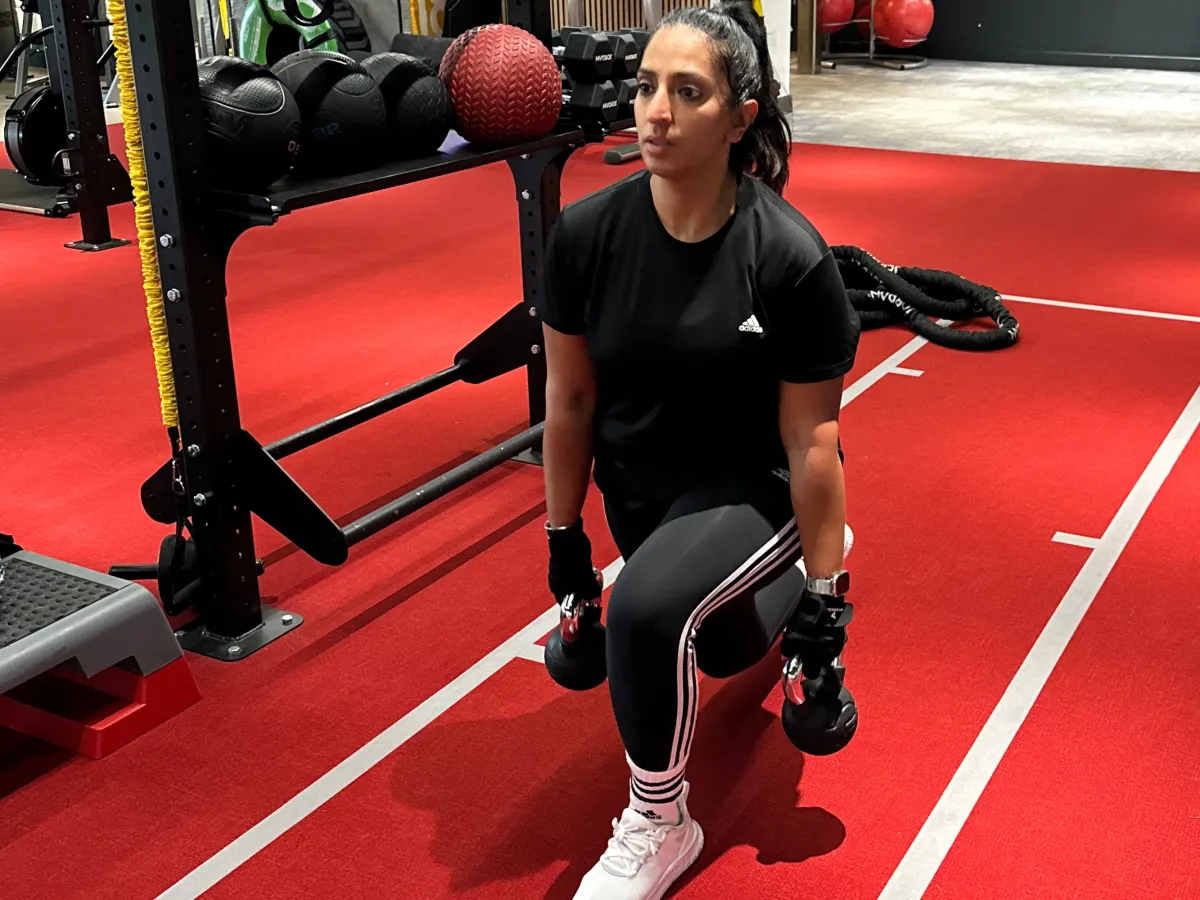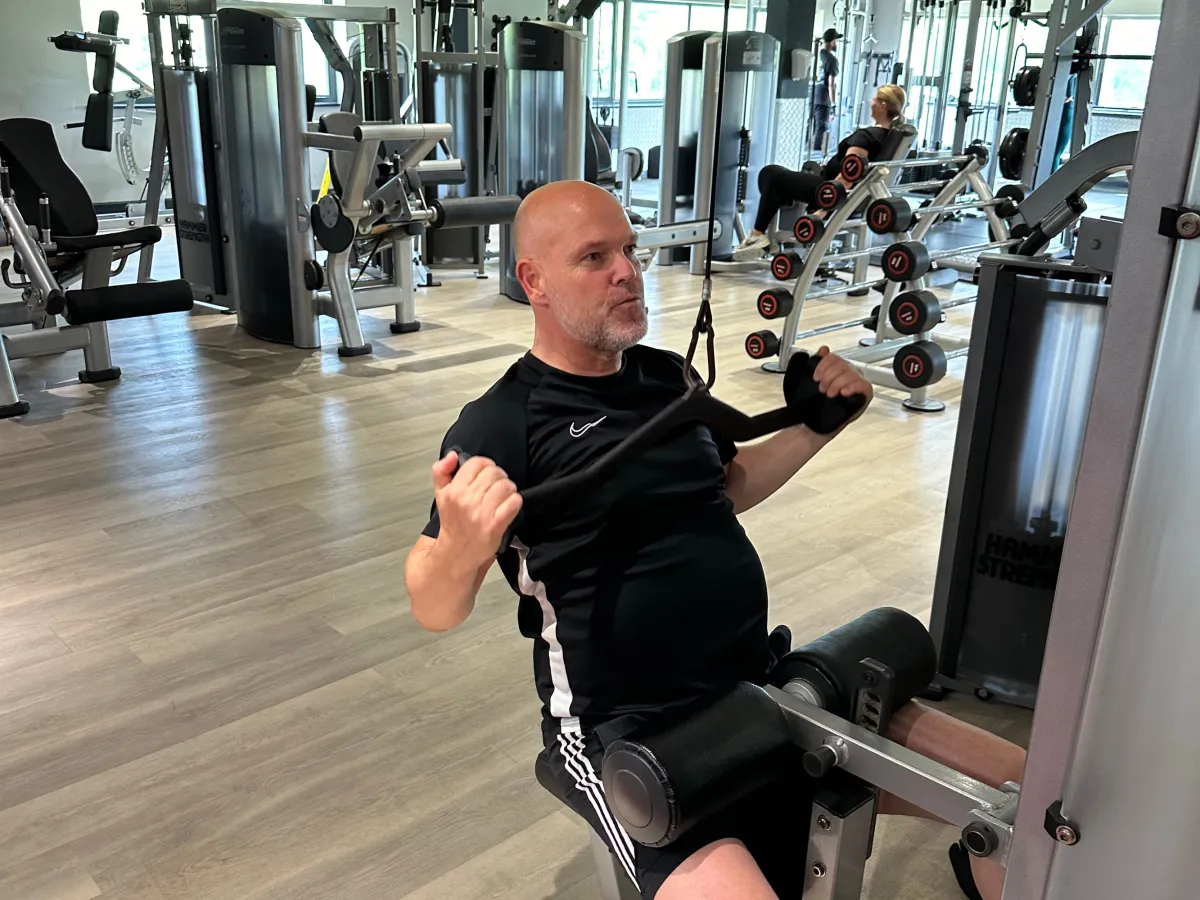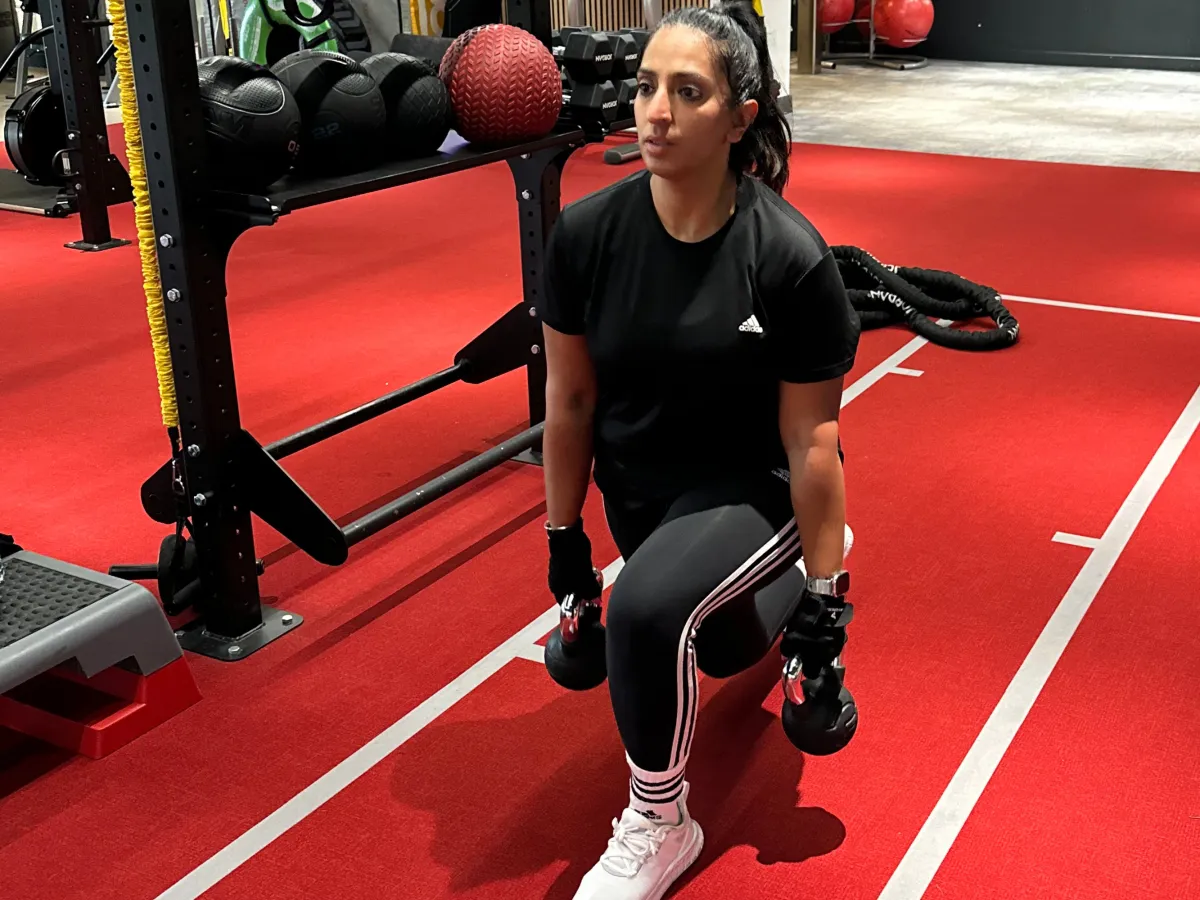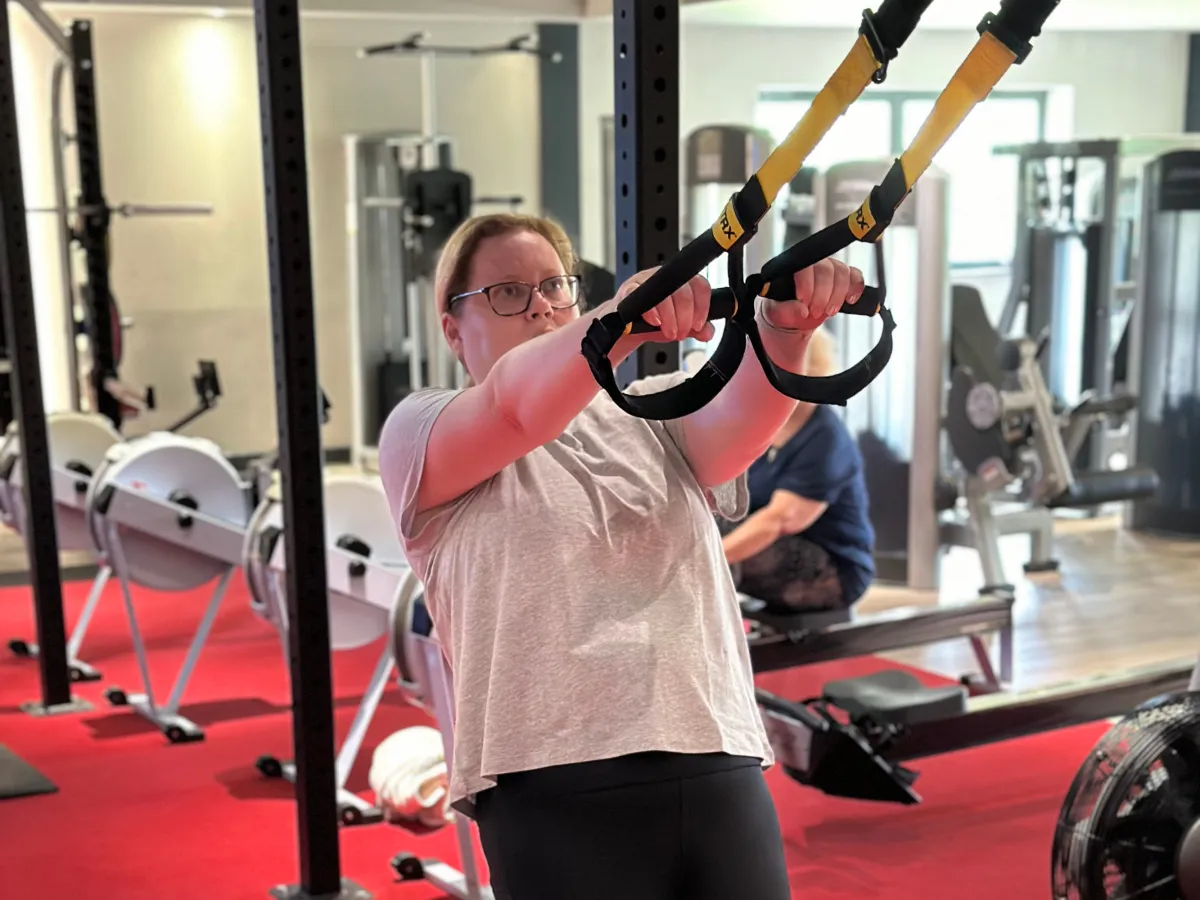
PrimeFit Coaching for Midlife Professionals Who Are Done With Diets, Gimmicks, and Starting Over
If you’re 40+ and frustrated with slow progress or feeling stuck, PrimeFit gives you expert coaching to rebuild your strength, energy, and confidence—without fads, pressure, or unrealistic plans.
Lose stubborn weight, build strength, and boost energy—with realistic, personalised coaching
Get expert support to manage menopause, mobility, or long-term health concerns—without judgement
Build lasting habits, stay accountable, and feel proud of your progress—for good.
CLICK BELOW TO WATCH FIRST!
Rob ede - Personal trainer - nutritionist

PrimeFit Coaching for Midlife Professionals
Done With Diets, Gimmicks, and Starting Over
Lose stubborn weight, build strength, and boost energy—with realistic, personalised coaching
Get expert support to manage menopause, mobility, or long-term health concerns—without judgement
Build lasting habits, stay accountable, and feel proud of your progress—for good.
This 90-second video explains how PrimeFit works.
Choose the Coaching Style That Fits Your Life
Get the same expert support and proven system—whether you want in-person sessions in Lightwater or full flexibility with remote coaching.
PrimeFit Online
100% Remote Coaching
£695 for 90 Days
A one-time payment for 12 weeks of full remote support, coaching, and progress tracking dashboard.
Personalised Online Training Plan
Nutrition Support & Recipe Packs
Weekly Check-ins + Live Q&A
Progress Tracking Dashboard
Expert Support Wherever You Are

PrimeFiT LIGHTWATER
In-Person & Online Support
From £252/Month
Monthly rolling plan for in-person sessions in Lightwater, and with full hybrid coaching
1 to 1 Personal Training in Lightwater
Nutrition Support & Recipe Packs
Weekly Check-ins + Live Q&A
Progress Tracking Dashboard
Expert Support Wherever You Are

Choose the Coaching Style That Fits Your Life
Get coaching your way—online or in-person in Lightwater.
PrimeFit Online
100% Remote Coaching
£680 for 90 Days
A one-time payment for 90-days of full remote support, coaching, and progress tracking dashboard.
Personalised Online Training Plan
Nutrition Support & Recipe Packs
Weekly Check-ins + Live Q&A
Progress Tracking Dashboard
Expert Support Wherever You Are
Best for flexibility and remote accountability

PrimeFiT LIGHTWATER
In-Person & Online Support
From £252/Month
Monthly rolling plan for in-person sessions in Lightwater, and with full hybrid coaching
1 to 1 Personal Training in Lightwater
Nutrition Support & Recipe Packs
Weekly Check-ins + Live Q&A
Progress Tracking Dashboard
Expert Support Wherever You Are
Best for hands-on support in Lightwater

Getting Started is Easy
And You’re Fully Supported From Day One
STEP 1
Choose the Coaching Plan That Fits Your Life
Select the online or in-person option that works best for your lifestyle, goals, and comfort level.
STEP 2
Get Started with your Personalised Plan
Get onboarded, receive your personalised plan.
Feel Better, Move Better, Live Better
I’ll help you improve sleep, strength, nutrition, and daily energy—one simple, supported step at a time.
You’re just one step away from feeling better, stronger, and more in control.
Getting Started is Easy
And You’re Fully Supported From Day One
STEP 1
Choose the Coaching Plan That Fits Your Life
Select the online or in-person option that works best for your lifestyle, goals, and comfort level.
STEP 2
Get Started with your Personalised Plan
Get onboarded, receive your personalised plan.
STEP 3
Feel Better, Move Better, Live Better
I’ll help you improve sleep, strength, nutrition, and daily energy—one simple, supported step at a time.
You’re just one step away from feeling better, stronger, and more in control.
Real People. Real Results
Every client started where you are—doubting it would work. Here’s what happened next.

“From back surgery to stronger than ever.”
“After a serious back operation, Rob has steered me through rehabilitation over the last 6 months expertly. I’m now at a fitness level I wouldn’t have dreamed of a year ago and my quality of life has returned. I am continuing my fitness journey with Rob, setting myself new goals for an active future. Highly recommended!”
- James


"I’ve completely changed my relationship with food, my mindset, and my energy levels."
“When I started the 90-day programme, I was nervous I’d fail. But it’s been life-changing. I’ve lost weight, built healthier habits, and never felt deprived. Rob’s support, clear guidance, and well-structured workouts gave me the confidence to push myself while always putting my well-being first.”
- Mandeep


“I feel stronger, more energised, and excited to train every week.”
“I was apprehensive at first, but his holistic, understanding approach quickly put me at ease. The workouts are varied and engaging...I feel more toned, my muscles feel alive, and I’m making better food choices thanks to his recipe packs and lifestyle advice. I really value being able to ask questions during sessions or watch his Q&A videos. If you’re thinking about getting started, I’d say don’t hesitate, just go for it!”
- Rowena

Real people in their 40s, 50s and 60s who followed the plan—and finally saw real change.
Real People. Real Results
Every client started where you are—doubting it would work. Here’s what happened next.

“From back surgery to stronger than ever.”
“After a serious back operation, Rob has steered me through rehabilitation over the last 6 months expertly. I’m now at a fitness level I wouldn’t have dreamed of a year ago and my quality of life has returned. I am continuing my fitness journey with Rob, setting myself new goals for an active future. Highly recommended!”
- James


"I’ve completely changed my relationship with food, my mindset, and my energy levels."
“When I started the 90-day programme, I was nervous I’d fail. But it’s been life-changing. I’ve lost weight, built healthier habits, and never felt deprived. Rob’s support, clear guidance, and well-structured workouts gave me the confidence to push myself while always putting my well-being first.”
- Mandeep


“I feel stronger, more energised, and excited to train every week.”
“I was apprehensive at first, but his holistic, understanding approach quickly put me at ease. The workouts are varied and engaging...I feel more toned, my muscles feel alive, and I’m making better food choices thanks to his recipe packs and lifestyle advice. I really value being able to ask questions during sessions or watch his Q&A videos. If you’re thinking about getting started, I’d say don’t hesitate, just go for it!”
- Rowena

Real people in their 40s, 50s and 60s who followed the plan—and finally saw real change.
No pressure. No gimmicks. Just a real plan that works—starting today.
This only works if you’re ready. Let’s make sure it’s a fit.
Ready to Stop Starting Over?
This isn’t a quick fix or a free taster. It’s proper coaching — built for people who are done messing about.
Structured coaching. Personalised planning. Weekly check-ins. Nutrition support. Real accountability.
This isn’t a trial — it’s your first step into lasting change.
This only works if you’re ready. Let’s make sure it’s a fit.
Ready to Stop Starting Over?
This isn’t a quick fix or a free taster. It’s proper coaching — built for people who are done messing about.
Structured coaching. Personalised planning. Weekly check-ins. Nutrition support. Real accountability.
This isn’t a trial — it’s your first step into lasting change.
Copyright 2025 Ede Fitness, All Rights | Privacy Policy | Terms & Conditions
